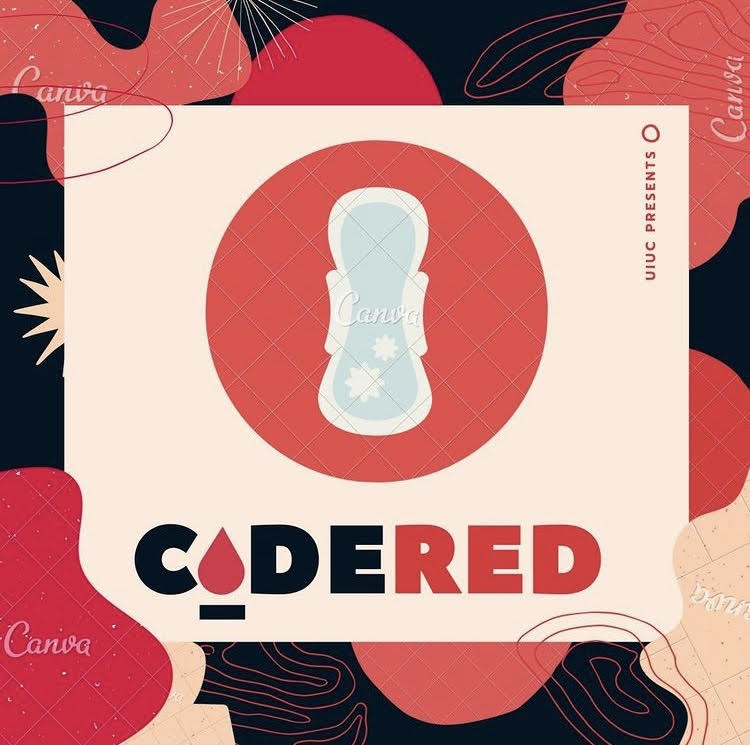CodeRed aims to bring menstruation equity on campus
Photo Courtesy of Mara Contreras
CodeRed aims to break the stigma around menstruation while making period products more accessible for those in the C-U community who are unable to afford them. The main goals of the RSO are period equity, education and empowerment.
Feb 1, 2021
A group of students at the University recently joined together to form a new RSO, CodeRed, which aims to tackle a lesser-known but prevalent issue in today’s society: period equity.
The creator of the organization — Xinyu Teng, junior in Engineering — is building a team to provide those who are not able to afford menstruation products opportunities for access both on and off campus.
Teng was raised in the Philadelphia area, with her host mom who was a social worker. She cites this as the first time she was exposed to a lot of homelessness, not just in larger cities but all around.
“That’s also when I came across the question: Every month when I purchase my period products, I spend 10 to 20 dollars, and I’ve been spending this money out of my parents’ pockets. If I didn’t have parents or didn’t have a job, where would I be taking the money out of?” Teng said. “It definitely wouldn’t be my priority, because it’s just period products, it’s not life saving. If I had other bills to pay for, this wouldn’t be my priority.”
She added that after becoming a junior at the University, she realized she has more of a responsibility as a student in the community, along with the time and energy to help solve the issue.
Get The Daily Illini in your inbox!
Teng broke down CodeRed’s mission into three “E’s”: Period Equity, Empowerment and Education.
“I want people to be able to learn from educators, researchers and activists, and people in the industry who are conducting the research, who are going to the legislators to talk,” Teng said. “And then on the other side of the club, I want to increase the accessibility of products, which is the period equity part.”
Teng added that it is important to break the stigma surrounding the idea that periods are something that people shouldn’t openly discuss. She added that the empowerment portion of the club comes naturally with being more educated on the topic.
“Also, helping people in the community with accessibility will just help everyone feel more empowered who are menstruators because there are non-women or people who don’t identify as females who menstruate,” Teng said. “I definitely want this club to be as inclusive as possible.”
CodeRed now has seven board members to work towards the club’s mission. Teng interviewed and recruited students to take on positions such as public relations with social media, which is currently filled by Mara Contreras, junior in AHS.
According to Contreras, the biggest challenge the club has faced so far, was spreading the word about CodeRed during the pandemic. She said that she, along with her peers on the executive board, had to get “creative” in order to get the word out.
As for the club’s future, Contreras said what they want to do is build a community at the University, and then eventually spread out to the surrounding area. She mentioned the possibility of an upcoming tampon drive, as well as assisting local women’s shelters and homeless shelters with providing menstruation products.
CodeRed’s first meeting of the semester will be held virtually on Feb. 2 at 5 p.m. Members will discuss their mission with students interested in joining plans for a bingo fundraiser and rose drive-in order to raise money that will aid in helping menstruators in the C-U community who are in need of products.
“This is not just a women’s club,” Contreras said. “This is for everyone and anyone who wants to learn about period equity and get educated and just try to make it empowering because a period shouldn’t be seen as disgusting. It is something natural that happens to all of us (menstruators) and we shouldn’t be ashamed of that.”






